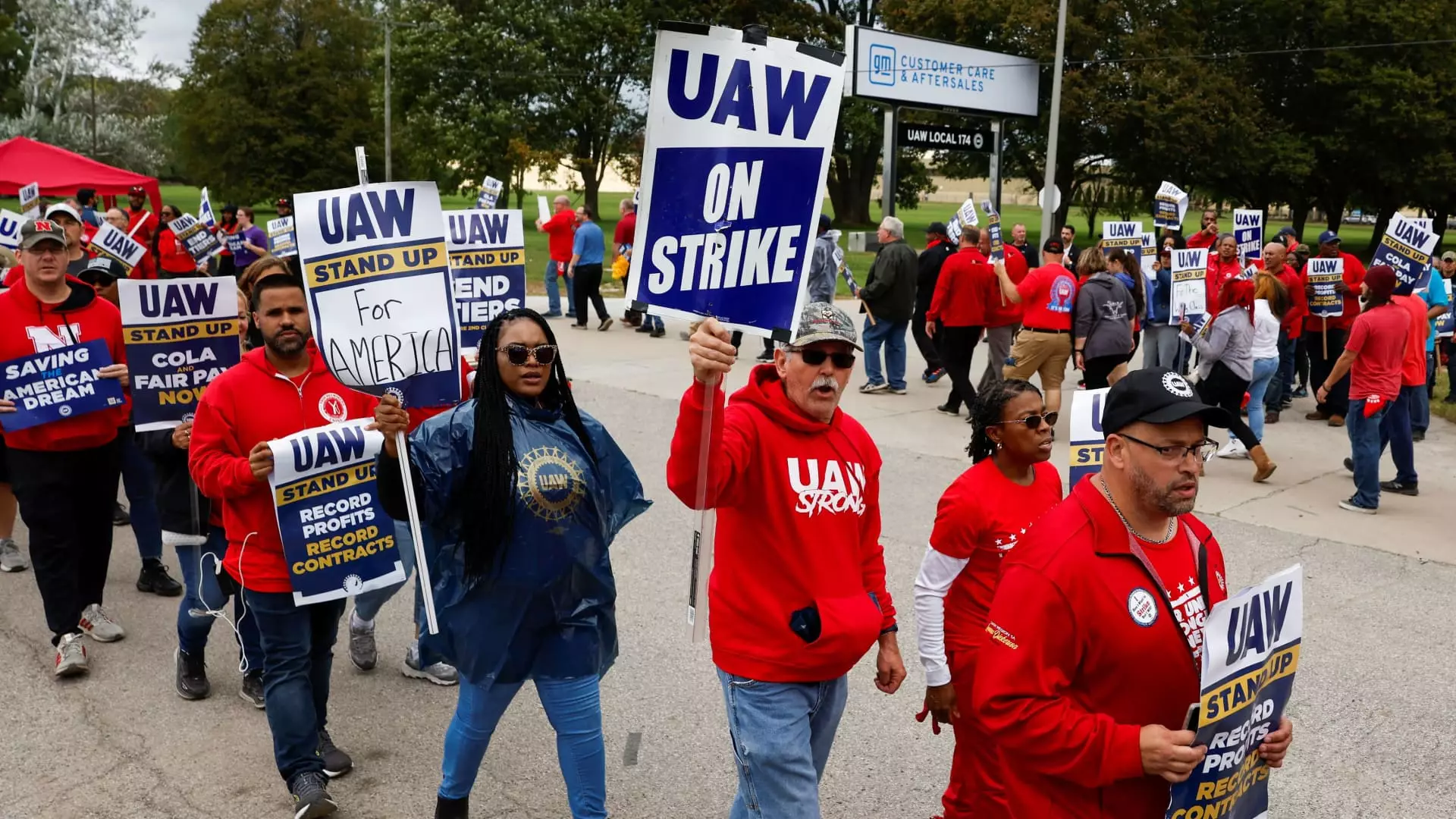The ongoing dispute between the United Auto Workers (UAW) and Detroit’s automakers shows no sign of resolution, as strikes enter their second week and tensions escalate. The UAW is set to announce additional strike targets, further delaying any potential breakthrough in negotiations with General Motors, Ford Motor, and Stellantis. Frustrations have grown on both sides, with accusations of a lack of urgency and delays in receiving counter proposals. This article explores the current state of negotiations, the economic demands at stake, and the concerns surrounding the pace of talks.
As negotiations continue, frustrations loom over key economic demands and perceived delays in the bargaining process. General Motors and Stellantis express increasing frustration with UAW President Shawn Fain’s lack of participation and the delayed receipt of counter proposals from the union. The lack of urgency by the union to reach a deal is raising questions about their commitment to ending the strikes. The UAW had not yet put forth counter proposals to offers made by the automakers a week earlier, further fueling concerns.
The first high-level meetings between UAW President Shawn Fain and the automakers came after the union set a new Friday deadline, questioning the union’s commitment to resolving the dispute. The lack of urgency in scheduling high-level meetings has frustrated company negotiators who are used to around-the-clock bargaining. Fain’s attempt to negotiate simultaneously with all three automakers has limited the frequency of talks, which exacerbates concerns about the pace of negotiations. Additionally, leaked private messages from a UAW communications director have raised further questions about the union’s negotiation strategy.
The dispute centers on several economic demands put forth by the UAW. While the automakers claim to have made substantial offers, the UAW demands more. The proposed deals include hourly wage increases of approximately 20%, significant bonuses, and enhancements to existing benefits packages. Ford has also offered to reinstate cost-of-living adjustments to counter inflation. However, the UAW seeks greater wage increases, an end to the “tier” system for new hires, a shorter workweek, and additional benefits related to electric vehicles.
The strikes have already led to work stoppages for approximately 12.5% of UAW members covered by contracts with Detroit automakers. The picket lines have been marred by confrontations, gun intimidations, hit-and-run accidents involving striking workers, and vandalism of vehicles and company property. The incidents have escalated to the point where people have suffered minor injuries. In response, General Motors has banned three contractors involved in an incident where a vehicle drove through the picket line. Stellantis, on the other hand, accuses the UAW of mischaracterizing incidents and emphasizes that it has not hired any replacement workers. The company has called on UAW leaders to ensure the safety of all employees, regardless of their stance in the dispute.
The tension between Detroit automakers and the UAW shows no sign of immediate resolution, as strikes continue and negotiations stall. Frustration mounts on both sides, with concerns about the pace of talks and the union’s commitment to reaching a deal. The economic demands put forth by the UAW are at the heart of the dispute, with the automakers offering what they consider substantial offers. The ongoing strikes, marked by safety concerns and clashes, further exacerbate the already strained relationship. As the UAW prepares to announce additional strike targets, the hopes for a swift resolution are fading, leaving both sides embroiled in a protracted battle.


Leave a Reply